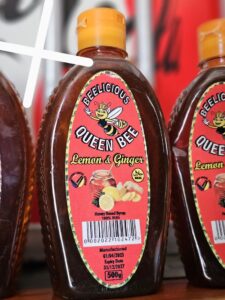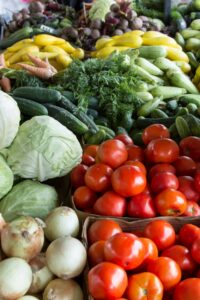Written by Wandile Sihlobo, Chief Economist at Agbiz
The South African leadership is in Vietnam today, 23 October 2025, for a State Visit. In a similar vein to our previous comment on the visit to Indonesia, the current engagements in Vietnam are key to deepening trade, amongst other issues.
South Africa is on a path of export diversification, and positioning the country in the minds of political leadership in various countries is crucial. What will need to follow these visits are technical engagements, particularly to widen exports of different sectors of our economy. The Department of Trade, Industry and Competition, along with the Department of International Relations and Cooperation, should lead such engagements.
Indeed, South Africa’s Department of Agriculture should also take a keen interest in these engagements. Vietnam is a market we keep on our radar in agriculture. The country spends over US$30 billion on agricultural imports annually.
But if one looks at Vietnam’s agricultural products suppliers, South Africa doesn’t feature prominently. South Africa ranked 34th among agricultural suppliers to Vietnam.
Consider 2024, Vietnam imported US$34 billion worth of agricultural products. South Africa accounted for only 0.3% of these imports (about US$89 million). The key suppliers of agricultural products to Vietnam were China, Brazil, the United States, Argentina, Cambodia, Australia, India, and Indonesia, collectively accounting for 70% of the country’s agricultural imports.
From a products perspective, Vietnam mainly imports maize, nuts, cotton, soybean oilcake, wheat, rice, soybean, beef, and palm oil. South Africa already exports maize, apples and pears, table grapes, nuts, and cotton to Vietnam.
Still, some of these products face some duties, albeit at MFN levels that are reasonably low. For example, South African apples, pears and table grapes face an 8% duty in Vietnam. If the duties were even lower, South Africa’s penetration into the Vietnamese market would be even more significant than it is now.
In addition to these products, South Africa also exports a range of fruits, wine, red meat, grains, and other products. Thus, State visits, such as the current one in Vietnam, coupled with the recent trip to Indonesia and the upcoming trip to Malaysia, must always place a strong focus on trade in the agricultural sector.
For other sectors of the economy, key areas include skills exchange and investment. But in agriculture, the primary focus is expanding export markets. This is not primarily a reaction to challenges in the United States.
Still, it is part of the long-running theme of South Africa’s agricultural growth agenda, reflected also in the Agriculture and Agro-processing Master Plan, published in May 2022.
As we stressed yesterday, as these high-level visits, which spotlight our industries, occur, we must also assess and enhance our capacity, as a country, to execute trade negotiations and secure trade deals for sectors.
We may no longer have the skills we had in the early 2000s in some departments. Therefore, capacitating officials while broadening the political conversation is key to the success of our export diversification.
This article first appeared on Sihlobo’s website here.
Photo: Trưởng Bản on Pexels



